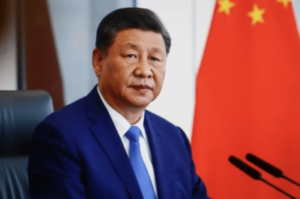$TSLA $ZK $NIO
#Tesla #Zeekr #EV #China #Stocks #Market #Investing #Finance #Tech #AutonomousVehicles #ADAS #ElectricCars
Chinese electric car manufacturer Zeekr has announced plans to roll out its advanced driver-assistance system (ADAS) to local customers for free, signaling an intensifying battle within China’s fast-growing electric vehicle sector. As the country’s automotive industry moves toward greater automation, Zeekr’s decision positions it as a direct competitor to Tesla, which has been expanding its Full Self-Driving (FSD) and Enhanced Autopilot features globally—albeit as paid software upgrades. The move places Zeekr among a handful of Chinese automakers aggressively integrating artificial intelligence and automation technologies into their vehicles, a trend rapidly shaping consumer preferences and market competition. This could further disrupt Tesla’s dominance in China, its second-largest market after the U.S., where regulatory limitations and pricing pressures have already forced the American EV leader to make strategic adjustments.
The offering of free ADAS capabilities could substantially impact Zeekr’s market positioning, as Chinese consumers remain highly cost-conscious yet eager for cutting-edge technology. This strategy sets it apart from most EV manufacturers, including Tesla, which relies on software subscription revenues to bolster margins. By contrast, Zeekr’s approach mirrors broader trends within China’s tech industry, where companies often provide advanced services for free to gain user adoption before monetization strategies evolve. While this might push profit margins lower in the short term, it could help Zeekr rapidly expand its customer base, enhance brand loyalty, and drive future demand for additional in-vehicle features or upgrades. Analysts suggest that if Zeekr’s ADAS system proves reliable and user-friendly, it may sway consumers who would otherwise lean toward Tesla, NIO, or BYD for high-tech features.
From a financial perspective, this move could pressure competitors to reconsider their pricing and feature rollout strategies. Automakers like NIO and Xpeng, both of which have made significant strides in intelligent driving technologies, may be forced to adjust their offerings to remain competitive. Tesla, which has been reliant on software-based revenue streams, may face renewed calls to rethink its subscription model in China, or risk losing price-sensitive buyers. Investors will likely monitor how Zeekr’s market share shifts following this announcement, keeping an eye on consumer adoption rates and whether the company revises the strategy to include premium-tier services. If successful, this could accelerate a broader industry shift toward free or low-cost autonomous driving features, particularly in China’s cost-competitive EV landscape.
In the broader market context, Zeekr’s aggressive technological push reflects China’s ambition to dominate the global EV and smart vehicle space. The country’s government has supported domestic manufacturers with incentives and regulatory policies that encourage innovation in semi-autonomous driving technology. This contrasts with regions like the EU and U.S., where regulatory scrutiny on autonomous features remains high. As Zeekr continues expanding beyond domestic borders—including possible international launches—investors will evaluate how this strategy impacts its valuation and competitive stance. If proven effective, it could also push Tesla and other global automakers toward similar pricing strategies in an effort to maintain global market leadership.











Comments are closed.